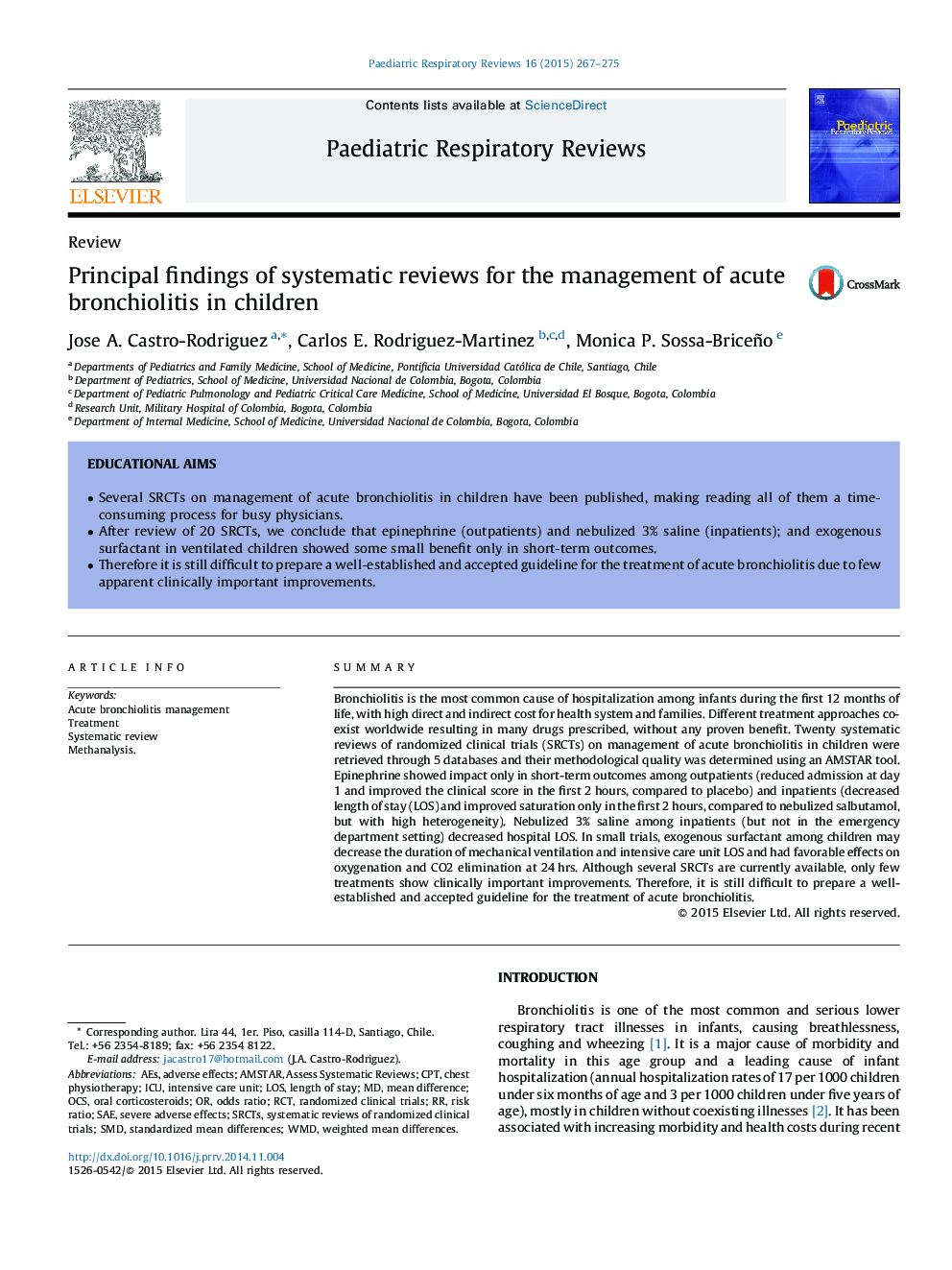| Article ID | Journal | Published Year | Pages | File Type |
|---|---|---|---|---|
| 6225994 | Paediatric Respiratory Reviews | 2015 | 9 Pages |
SummaryBronchiolitis is the most common cause of hospitalization among infants during the first 12 months of life, with high direct and indirect cost for health system and families. Different treatment approaches co-exist worldwide resulting in many drugs prescribed, without any proven benefit. Twenty systematic reviews of randomized clinical trials (SRCTs) on management of acute bronchiolitis in children were retrieved through 5 databases and their methodological quality was determined using an AMSTAR tool. Epinephrine showed impact only in short-term outcomes among outpatients (reduced admission at day 1 and improved the clinical score in the first 2Â hours, compared to placebo) and inpatients (decreased length of stay (LOS) and improved saturation only in the first 2Â hours, compared to nebulized salbutamol, but with high heterogeneity). Nebulized 3% saline among inpatients (but not in the emergency department setting) decreased hospital LOS. In small trials, exogenous surfactant among children may decrease the duration of mechanical ventilation and intensive care unit LOS and had favorable effects on oxygenation and CO2 elimination at 24Â hrs. Although several SRCTs are currently available, only few treatments show clinically important improvements. Therefore, it is still difficult to prepare a well-established and accepted guideline for the treatment of acute bronchiolitis.
